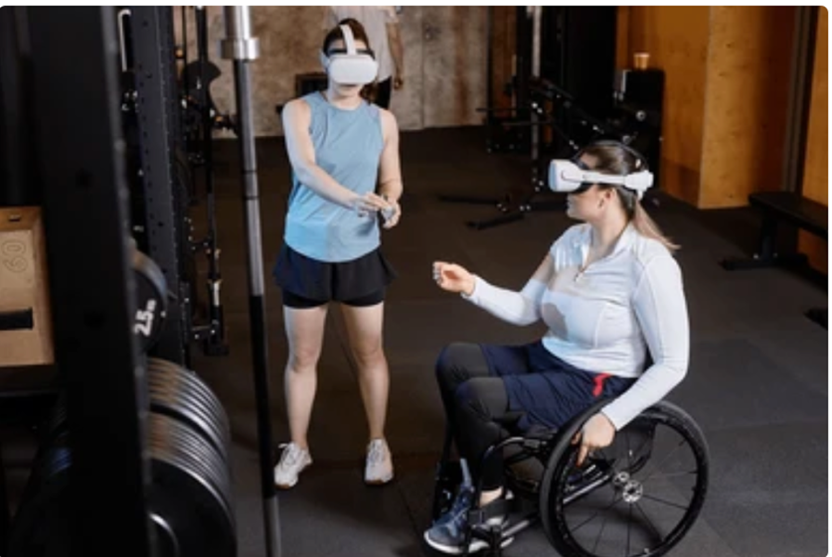Hee-Tae Jung (Luddy)
Advancing Sustainable Development Through Health Informatics Innovation
Addressing SDG 3
Dr. Hee-Tae Jung, Assistant Professor of Health Informatics, is a leading figure in developing human‐centered health technologies that enhance healthcare access, quality, and outcomes—especially for individuals with chronic conditions and their caregivers. Through interdisciplinary research and global partnerships, he has pioneered innovations in chronic disease management, rehabilitation technology, and digital healthcare infrastructure.
Research Focus
Dr. Jung’s work addresses key targets within Sustainable Development Goal 3, focusing primarily on non-communicable diseases (NCDs) and healthcare accessibility. Rather than broadly targeting mental health, his research emphasizes improving ecologically valid functional performance—that is, enhancing everyday independence and quality of life. To achieve this, his research deploys advanced methods including:
- Wearable Sensor Platforms: Enabling continuous monitoring and personalized therapy.
- Extended Reality (XR) Experiences: Incorporating virtual reality to provide immersive, innovative interventions.
- Serious Games: Supporting remote assessment and rehabilitation for conditions such as stroke, acquired brain injuries, and neurodegenerative diseases—including Alzheimer’s Disease and Alzheimer’s Disease-Related Dementia (AD/ADRD).
Innovative Interventions
Dr. Jung’s digital health strategies feature a mix of home-based and clinical solutions:
- VR-Assisted Daily Activity Training: Specifically designed for individuals with Alzheimer’s Disease, this approach focuses on enhancing real-world daily activities rather than purely cognitive training.
- Mobile Applications for ADHD Symptom Tracking: These apps are crafted to monitor symptoms and provide personalized insights for better management.
- Integrated Assessment and Intervention via Serious Games and VR Solutions: By embedding communication components within these interventions, the approach emphasizes practical daily activity enhancement.
Importantly, while some interventions utilize affordable, smartphone-based VR to improve accessibility, others depend on sophisticated, high-cost VR hardware—such as the VR-assisted overground gait therapy for individuals with acquired brain injury—that is deployed within clinical or rehabilitation settings.
Educational Initiatives
Through programs like the DataWiz Scholars Program, Dr. Jung mentors undergraduates—especially from underrepresented backgrounds—in health informatics. His interdisciplinary teaching provides students with critical skills in computing, health systems, and research methods, forming a robust foundation for the next generation of digital health innovators.
Target Population and Impact
Dr. Jung’s work serves a wide range of individuals with chronic conditions and their caregivers. His research specifically supports:
- Stroke Survivors
- Individuals with Traumatic Brain Injury
- Patients Living with Dementia
- Individuals with Development Disorders (e.g., ADHD)
This comprehensive approach avoids narrow age-based categorizations; it acknowledges that both young adults and older individuals can face significant challenges, ensuring systematic support for all who need it.
Collaborative Efforts
Dr. Jung’s collaborative endeavors unite clinical institutions, academic partners, nonprofits, and industry stakeholders. His partnerships with organizations such as the Dementia Action Alliance, Dementia Friendly Indianapolis, and day activity centers in central Indiana—as well as various health-related departments—demonstrate his commitment to integrating high-quality health solutions both in clinical settings and across communities.
Selected Works
https://sites.google.com/iu.edu/htlab/home
https://scholar.google.com/citations?user=wfRTGWcAAAAJ&hl=en
https://news.iu.edu/luddy/live/news/44368-health-informatics-researcher-explores-use-of-vr
https://pubs.asha.org/doi/abs/10.1044/2024_AJSLP-24-00177
https://web.cs.umass.edu/publication/docs/2019/UM-CS-PhD-2019-003.pdf |
 |
 |


